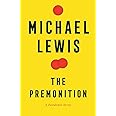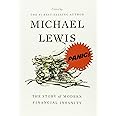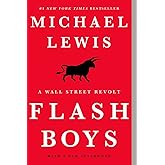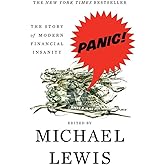
Enjoy fast, free delivery, exclusive deals, and award-winning movies & TV shows with Prime
Try Prime
and start saving today with fast, free delivery
Amazon Prime includes:
Fast, FREE Delivery is available to Prime members. To join, select "Try Amazon Prime and start saving today with Fast, FREE Delivery" below the Add to Cart button.
Amazon Prime members enjoy:- Cardmembers earn 5% Back at Amazon.com with a Prime Credit Card.
- Unlimited Free Two-Day Delivery
- Streaming of thousands of movies and TV shows with limited ads on Prime Video.
- A Kindle book to borrow for free each month - with no due dates
- Listen to over 2 million songs and hundreds of playlists
- Unlimited photo storage with anywhere access
Important: Your credit card will NOT be charged when you start your free trial or if you cancel during the trial period. If you're happy with Amazon Prime, do nothing. At the end of the free trial, your membership will automatically upgrade to a monthly membership.
Buy new:
-30% $16.70$16.70
Ships from: Amazon Sold by: BOZ LLC
Save with Used - Good
$6.10$6.10

Download the free Kindle app and start reading Kindle books instantly on your smartphone, tablet, or computer - no Kindle device required.
Read instantly on your browser with Kindle for Web.
Using your mobile phone camera - scan the code below and download the Kindle app.

OK
 Audible sample Sample
Audible sample Sample 


Next: The Future Just Happened First Edition
Purchase options and add-ons
A mordantly funny exploration of the brave new world spawned by the Internet.
In Liar's Poker the barbarians seized control of the bond markets. In The New New Thing some guys from Silicon Valley redefined the American economy. Now, with his knowing eye and wicked pen, Michael Lewis reveals how much the Internet boom has encouraged great changes in the way we live, work, and think. He finds that we are in the midst of one of the greatest status revolutions in the history of the world, and the Internet turns out to be a weapon in the hands of revolutionaries. Old priesthoods―lawyers, investment gurus, professionals in general―are toppling right and left. In the new order of things, the amateur, or individual, is king: fourteen-year-old children manipulate the stock market and nineteen-year-olds take down the music industry. Deep, unseen forces are undermining all forms of collectivism, from the family to the mass market: one little black box has the power to end television as we know it, and another one―also attached to the television set―may dictate significant changes in our practice of democracy. Where does it all lead? And will we like where we end up?A brave new world indeed . . . and who better to guide us through it than Michael Lewis, whose subversive, trenchant humor is the perfect match to his subject matter. Here is a book as fresh as tomorrow's headlines, and as entertaining as its predecessors.
- ISBN-100393020371
- ISBN-13978-0393020373
- EditionFirst Edition
- PublisherW. W. Norton & Company
- Publication dateJuly 17, 2001
- LanguageEnglish
- Dimensions6.5 x 1 x 9.6 inches
- Print length240 pages
Books with Buzz
Discover the latest buzz-worthy books, from mysteries and romance to humor and nonfiction. Explore more
Frequently bought together

Similar items that may deliver to you quickly
Editorial Reviews
Amazon.com Review
Central to Lewis's observations is the idea that the Internet hasn't really caused anything; rather it fills a type of social hole, the most obvious of which is a need to alter relations between "insiders" and "outsiders." In Next, Lewis shows how the Internet is the ideal model for sociologists who believe that our "selves are merely the masks we wear in response to the social situations in which we find ourselves." It is the place where a New Jersey boy barely into his teens flouts the investment system, making big enough bucks to get the SEC breathing down his neck for stock market fraud. Where Markus, a bored adolescent stuck in a dusty desert town and too young to even drive, becomes the most-requested legal expert on Askme.com, doling out advice on everything from how to plead to murder charges to how much an Illinois resident can profit from illegal gains before being charged with fraud ($5,001 was the figure Markus supplied to this particular cost-benefit query). Where a left-leaning kid of 14 in a depressed town outside Manchester is too poor to take up a partial scholarship to a school for gifted children, but who spends all hours (all cheap call-time hours, at least) engaged in "digital socialism," trying to develop a successor to Gnutella, the notorious file-sharing program that had spawned the new field of peer-to-peer computing. Lewis burrows deeply into each of these stories and others, examining social phenomena that the Internet has contributed to: the redistribution of prestige and authority and the reversal of the social order; the erosive effect on the money culture (both in the democratization of capital and in the effect of gambling losing its "status as a sin"); the decreased value we place on formal training (or as he puts it "casual thought went well with casual dress"); and the increased need for knowledge exchange.
Lewis's observations are piercingly sharp. He can be very funny in portraying ordinary people's behavior, but remains thorough and insightful in his examination of the social consequences. He notes that Jonathan Lebed, the teenage online investor, had "glimpsed the essential truth of the market--that even people who called themselves professionals were often incapable of independent thought and that most people, though obsessed with money, had little ability to make decisions about it." While Lewis's commentary gets a little more dense and theoretical toward the end, Next is an entertaining, thought-provoking look at life in an Internet-driven world. --S. Ketchum
From Publishers Weekly
Copyright 2001 Cahners Business Information, Inc.
Review
A fascinating view of the future of global commerce, which, clearly, is well underway. -- Miami Herald, Richard Pachter, 30 July 2001
A thoughtful and entertaining look at the rise and fall of our new Internet-driven economy. -- Entertainment Weekly EW.com "Best Summer Reading," 9 August 2001
Don't miss his last chapter: "The Unabomber Had a Point." -- New York,, Boris Kachka, 25 June 2001
His book is a wake-up call at a time when many believe the net was a flash in the pan. -- BusinessWeek, Robert D. Hof, 6 August 2001
Lewis has many good and useful things to say in this book, and he says them in an easy and witty way. -- New Orleans Times-Picayune, William C. Gibson, 29 July 2001
Michael Lewis has a knack for tapping the business zeitgeist. -- Fast Company, Polly Labarre, August 2001
[Lewis] has a natural talent for spinning hilarious scenes and uncovering wicked details. -- Newsweek
[P]rovocative and entertaining....Lewis is a gifted journalist and a smart observer. -- Wall Street Journal, Jon Katz, 27 July 2001
[U]nderstated humor and keen-edged sociological observations... -- Boston Herald, Rob Mitchell, 29 July 2001
From the Inside Flap
A brave new world indeed...and who better to guide us through it than Michael Lewis, whose subversive, trenchant humor is the perfect match to his subject matter. Here is a book as fresh as tomorrow's headlines, and as entertaining as its predecessors.
About the Author
Product details
- Publisher : W. W. Norton & Company; First Edition (July 17, 2001)
- Language : English
- Hardcover : 240 pages
- ISBN-10 : 0393020371
- ISBN-13 : 978-0393020373
- Item Weight : 2.4 ounces
- Dimensions : 6.5 x 1 x 9.6 inches
- Best Sellers Rank: #1,610,735 in Books (See Top 100 in Books)
- #1,113 in Computers & Technology Industry
- #2,093 in Journalism Writing Reference (Books)
- #2,682 in Internet & Telecommunications
- Customer Reviews:
About the author

Michael Lewis, the best-selling author of The Undoing Project, Liar's Poker, Flash Boys, Moneyball, The Blind Side, Home Game and The Big Short, among other works, lives in Berkeley, California, with his wife, Tabitha Soren, and their three children.
Customer reviews
Customer Reviews, including Product Star Ratings help customers to learn more about the product and decide whether it is the right product for them.
To calculate the overall star rating and percentage breakdown by star, we don’t use a simple average. Instead, our system considers things like how recent a review is and if the reviewer bought the item on Amazon. It also analyzed reviews to verify trustworthiness.
Learn more how customers reviews work on Amazon-
Top reviews
Top reviews from the United States
There was a problem filtering reviews right now. Please try again later.
Since then lot of things have happened with the help of Internet.
Few dictators fell partially because of its effects, the way new generation thinks of privacy has changed and more of the social effects will become visible with time.
Just amazed at the authors ability to write on a subject matter I did not associate with him. It's truly original investigation and him being a great story teller a good read.














